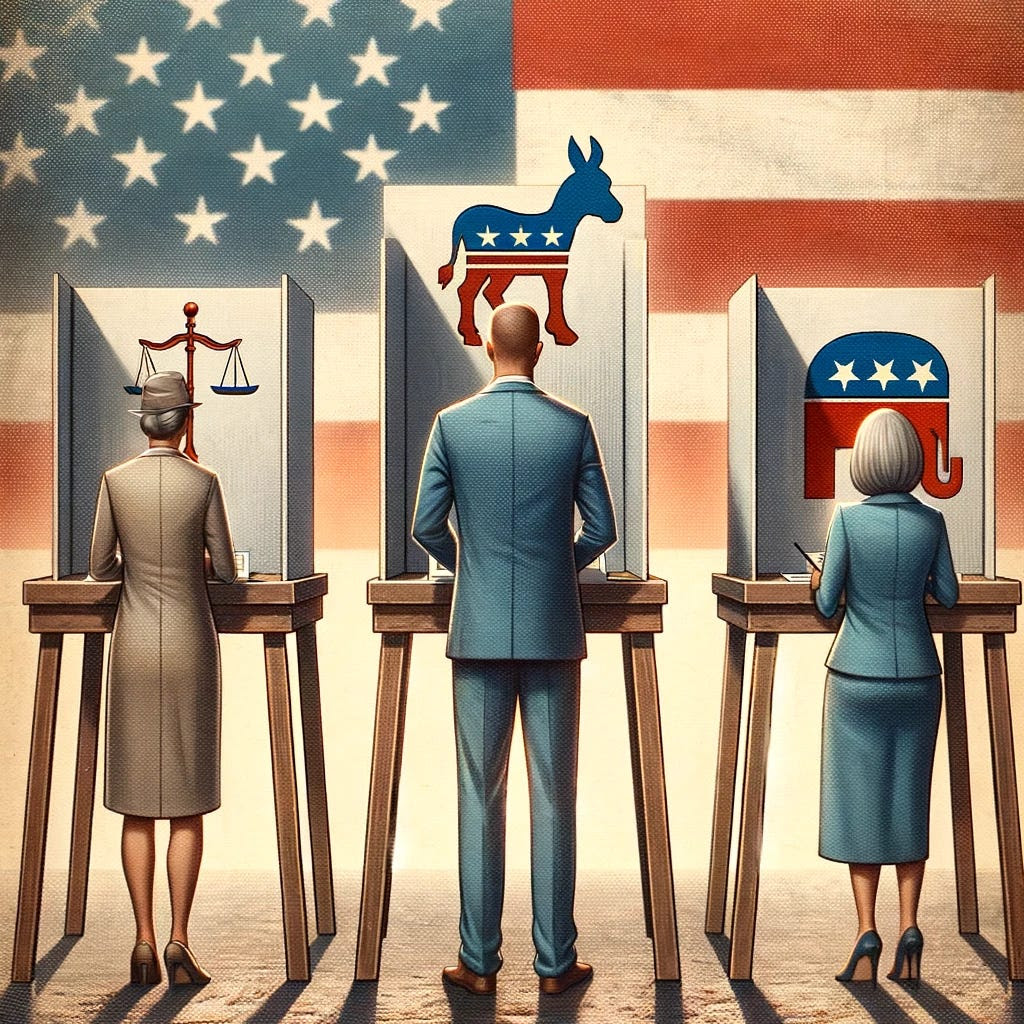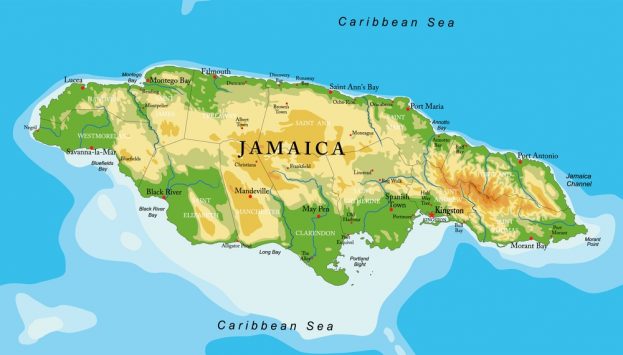
My late mother-in-law, God rest her soul, could not understand why I was not registered as a voter in the Democratic Party (DNC) here in the United States. I guess that her confusion at my choice came against the backdrop of the many things that African-Americans were able to benefit from through the auspices of that party.
By the same token, I would, no doubt, be met by the same remonstration from my African-American brethren who are firmly aligned with the Republican Party. But I have come to learn from personal experience and from reading that politics can and often is a fickle business. Ideologies change, as do alliances and geopolitical maps. Those who were mortal enemies yesterday sometimes declare themselves as lifelong friends today. As I said before, the world of politics is a fickle business and that is the reason for me always wanting to keep my options open.
As long as people are people, there will always be differing opinions. As long as there are differing opinions, there will always be conflict. As long as there is conflict, there will always be tension between good and evil, and an up and down seesawing between what has been determined as need as against greed, and between justice and injustice. And, as long as there is politics there will always be elements within it which will lean towards tribalism and those, to the contrary, with a finer, more altruistic side, which will occupy realms of inclusiveness and of peace.
A few individuals from history come to mind like the Russian writer Leo Tolstoy, the author of the novel, War and Peace, and the late Civil Rights leader Dr. Martin Luther King, Jr, who championed the rights of African-Americans and of other minorities through a philosophy of “non-violence”. Political propaganda cracks the whip for political factions, and so it is ever needful for all involved in the voting process to step back and to reassess the diet of ideas that they serve to society by those within them who vie for political power.
If one was a visitor to my humble abode, one would find bronze busts of a few iconic figures from world history and from U.S. history. For example, one would see a bust of Nelson Mandela of South Africa and a statue of Mohandas Gandhi of India. One would also find the bronze busts of famous African-Americans — among them, the ex-slave turned orator, political activist and statesman Frederick Douglass; the ex-slave and preeminent educator Booker T. Washington; and journalist and political activist Ida B. Wells. All three were of international renown. All three were ardent proponents for the betterment of all African-Americans, but they disagreed on which was the best way to achieve such a goal. Douglass and Wells were fierce opponents of Washington, and for good reason, yet their busts sit atop one of the bookshelves in my home. I could not have given any a place of honour without some acknowledgment of the others.
The iconic images of two other individuals from U.S. history, both men and both white, can also be observed looking off in the distance from their perch on another bookshelf, those being President Abraham Lincoln, elected to that post from the Republican Party on November 6, 1860, during tumultuous times when “The Union” or “The Republic” was under the existential threat bent on seeing its dissolution; and President Lyndon B. Johnson of the Democratic Party, who succeeded President John F. Kennedy, after the latter’s assassination in Dallas, Texas on November 22, 1963.
Much could be said about these two flawed individuals, and with enough available historical material to paint them in both a positive and negative light, and to question things that they had said and done. Both men used the term “nigger” to address my race in a pejorative manner, and yet, iconography commemorating their presidencies — if not in whole then in part — adorn my humble abode. Why? Because against their worse selves, their better angels did something for my race.
I am a firm believer in history, and I can understand and appreciate why some in the American electorate have chosen to cling, doggedly, to one political party or the other. But politics, as I said, is a fickle business and I, therefore, always want to know what those who are running for public office are willing to do for my people and for all who are oppressed and marginalized, including women, today. I want to wear a label that will not quickly turn off those on the political right and those on the political left, especially in difficult conversations that I would like to engage them in when the need arises.
For many African-Americans the Grand Old Party (GOP) is seen as their first and their only choice, given that it was through the efforts of that political party that we now enjoy — to varying degrees — the benefits of the 13th, the 14th and the 15th amendments made to the Constitution of the United States today. But it is the same party, since Reconstruction, which has assiduously sought to obstruct access to the rights contained therein. On the other side of the coin, the DNC has a very long history of opposing all that was achieved for my race since Reconstruction, and one only needs to read the Southern Manifesto published by them, in 1956, and to recall photographs and video clips of their bloodied billy clubs, their snapping police dogs, and of their gushing fire hoses — all used against men, women and children of colour in the Jim Crow Segregated South. And yet, it was they who gave us the Civil Rights Act of 1964, the Voting Rights Act of 1965, and the Civil Rights Act of 1968.
The New Deal programmes brought into being by the Franklin D. Roosevelt administration of the DNC during the Great Depression, derisively referred to by political conservatives of the GOP as “entitlement programmers”, benefited more struggling white families than they did Black families. And despite the benefits provided to the poor, which established a platform for the expansion of the American middle class, there are many “fiscal conservatives” who have made it their mission, in the decades since the advent of such “entitlement programmes”, to stymie and to completely reverse federal laws and government policies which undergird, and which continue to promote their expansion.
Again, it was the GOP which passed an Act in Congress on March 3, 1865, to establish a Bureau for the Relief of Freedmen and Refugees after the Civil War to provide food, shelter, clothing, medical services, and land to displaced Southerners, including newly freed African-Americans. Howard University, my alma mater, was just one of many historically black colleges and universities (HBCUs) which came into existence under its auspices during the period of Reconstruction.
When I hear many in the GOP today whine and clamour about the Affordable Care Act (ACA), referred to by them, contemptuously, as “Obamacare”, I recall that one of their own, in February 1971, President Richard Nixon, had proposed more limited health insurance reform — which included an employer mandate to offer private health insurance if employees volunteered to pay 25 per cent of premiums, and a federalization of Medicaid for the poor with dependent minor children, among other things. Subsequent to the efforts of President Nixon, the following article, titled ‘Mitt Romney Finally Takes Credit For Obamacare’ which was published by NPR on October 23, 2015 reads as follows:
“It’s a good thing for him that Mitt Romney isn’t running for president again. The 2012 GOP presidential nominee — who has still been bandied about as a potential candidate — just embraced everything that made many conservatives skeptical of him. He admitted that the health care plan he instituted as governor of Massachusetts was the precursor to Obamacare.”
It was Chief Justice Earl Warren of the United States Supreme Court, a Republican, who was nominated to that post by another Republican, President Dwight D. Eisenhower, who led the court in its unanimous decision in Brown versus the Board of Education, in 1954, that ruled that segregation was unconstitutional. The ruling sent shockwaves through the South and overturned decades of practice. Conversely, it was Chief Justice Roberts, another Republican, who oversaw and supported the court’s ruling in Shelby County versus Holder, on June 25, 2013, which was a landmark U.S. Supreme Court ruling that gutted the Voting Rights Act of 1965 by eliminating critical protections from discrimination. This ruling has allowed many Republican-dominated states to pass legislation towards voter suppression in the run-up to the general election that has been set for this year — November 2024.
And now, the GOP, the party which has long touted itself as the one of “law and order” has defended the insurrectionists who attacked the United States Capitol Building on January 6, 2021, and shares the same sentiments of Vladimir Putin of Russia, a nation that was viewed and treated as America’s mortal enemy by none other than one of their very own — President Ronald Reagan. And what of then Senator Joe Biden who took the Republican administration to task over its nonchalant approach to the treatment of Blacks by the South African regime, under its system of Apartheid, who, since becoming President of the United States, has reacted in similar fashion to the apartheid-like treatment of the Palestinians by the state of Israel, in Gaza, since the horrific attack against it in October of 2023 by Hamas?
In closing I would like to state that I have learned throughout my years in university that snippets of history and of social science data cannot be accurately assessed outside of the wider contexts in which they are found. That being said, I must be careful to note that the Republican party of Abraham Lincoln’s day and of Ulysses S. Grant’s day, one that I had come to admire, greatly, from my reading of U.S. history, does not resemble in philosophy nor in practice — not even in the slightest — the Republican Party of today. In simple terms — whereas the first fought, might and main, to defend the Capitol and all that it represents, the second iteration of the party, a glaring and a tragic devolution of the first, has done and continues to do the complete opposite.
The transformation which has taken place within the Republican Party structure was due, partly, to the migration of the racist Southern Democrats, back in the day, into the Republican party. The latter — the Democratic Party — now operates like how the “Radical Republicans” did during Reconstruction. And so my political party independence is as much symbolic as it is actual, and it is as much aspirational as it is symbolic.
Sing me the old songs of inclusive hope and of enlightened progress, like in the days of Reconstruction, and perhaps, just perhaps, I will come, and I will dance, and I will sing at your party.
I believe that the American actress, Rachel Nichols was right when she said: “History is fickle. We know that. The good and bad come around and go around, and go around again. There are recessions and depressions and economic boom and bust.”
I also believe that Ralph Waldo Emerson had a point when he stated that: “We are a puny and fickle folk. Avarice, hesitation, and following are our diseases.”



